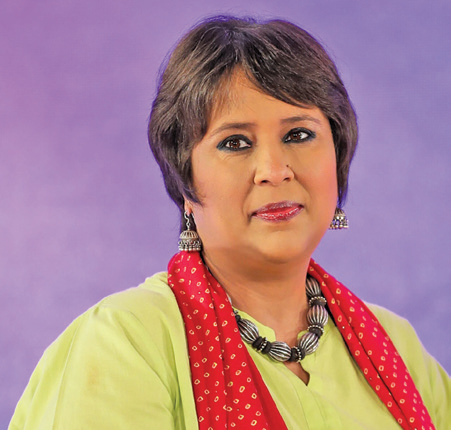
Bias countered with selective bias not journalistic: Barkha Dutt
NT Bengaluru
The three 'tyrannies' faced by the Indian media besides the rise of technology and the culture of news consumption were key topics covered by well-known scribe Barkha Dutt, who delivered a talk here on Tuesday. Barkha, a digital journalist who worked for NDTV for a long time, now runs a YouTube channel called 'MojoStory'. She is known for covering the Kargil war, the terrorist attack on the Taj Hotel in Mumbai and the COVID-19 crisis.
She has won several awards including the Padma Shri in 2008. Speaking at an event titled 'Media Freedom: Past, Present and the Future' at Bangalore International Centre (BIC), Barkha said: ''The three tyrannies start with the 'state' and successive governments. In my initial days at Doordarshan, every script had to be scrutinised by an officer in the Information and Broadcasting Department. When the flag of Jammu Kashmir was hoisted and I had to report on it, it was struck out by the vetting officer,” she recalled. The second is the 'Tyranny of the market.' This happened when India opened to liberalisation and privatisation, and news became private. “As Television Rating Points (TRP) came in, there were ways to manipulate the system, which paved the way for advertisers. Editors were pressurised by these advertisers to provide content catering to their needs,” she said, adding that businesses entering media houses have only propagated their ideals via the said media house.
Now with technology taking centre stage, Barkha coined the final tyranny as the 'tyranny of algorithm.' Although her current stint as a digital journalist offers more space, Barkha felt the algorithm is often overlooked. “With views being more visible and content being vulnerable to trolls, young journalists either change their commentary or simply go silent to avoid trolls,” she said. She also spoke on how the Internet serves to build up biases. “Countering that with selective bias will do harm and is not journalistic,” she remarked.
She finally touched on the culture of consumption of news in the present era, despite technology offering a level playing field to everyone. “If people don’t pay for news that they care about, then that’s helping big business houses to take over and run them as per their business ideals,” she summed up.
 English daily published in Bengaluru & Doha
English daily published in Bengaluru & Doha






